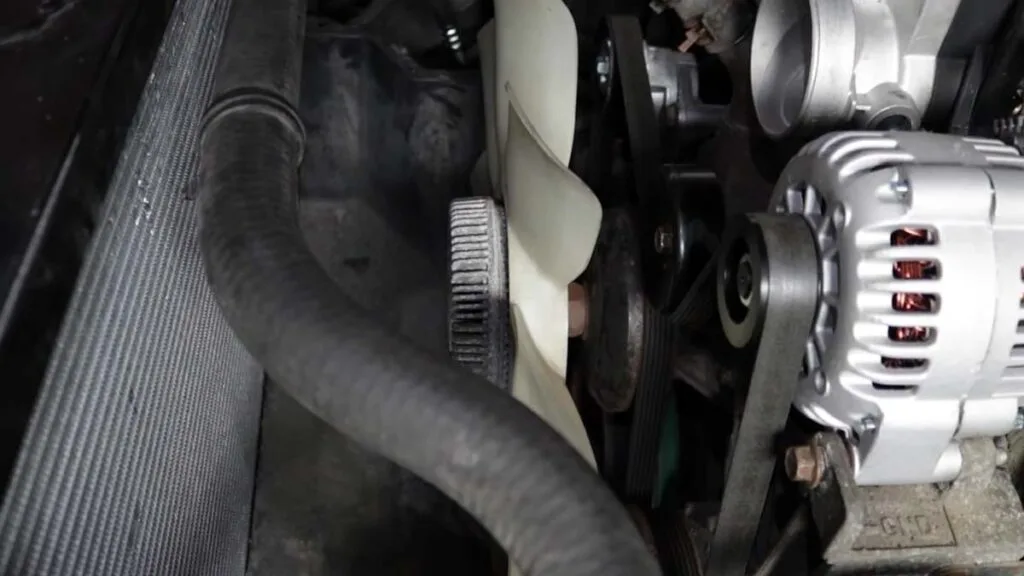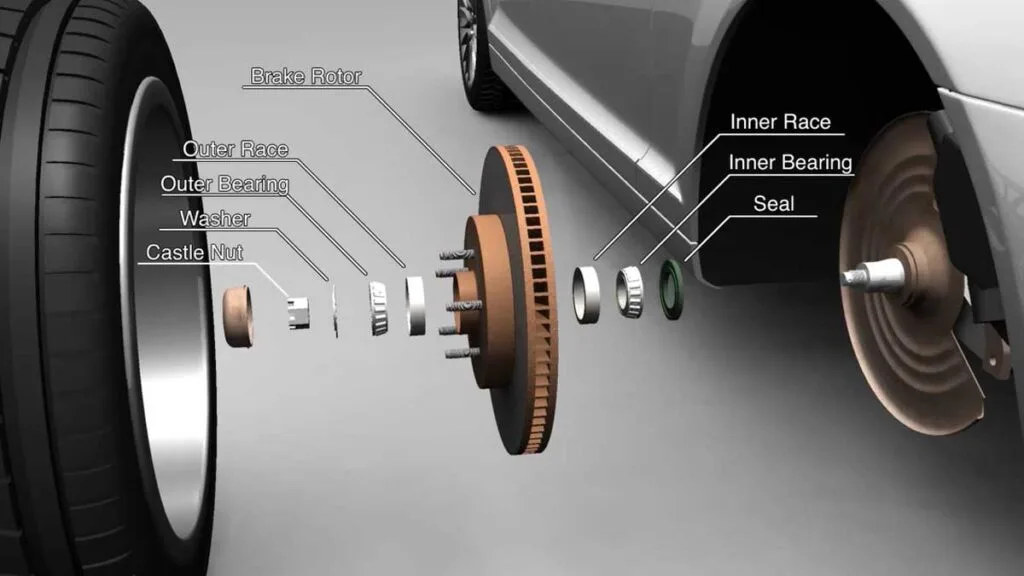As we always mention in our articles, it is not good to ride far when your car makes unfamiliar sounds. So in this article, we will discuss another sound/noise that comes out from your vehicle.
Propeller sound from front of car; many car owners have this issue with their vehicles. So, you came here because you have the same problems, and you are one of those who love and keep their cars in the first place of their lives. So, stick until the end, and we will find out the significant reasons and possible fixes for this issue.
Why does your car sound like a Helicopter? [Propeller Sound].
Listening to your automobile idle and hearing a sound that sounds like helicopter blades buzzing might be a little confusing. There’s no location for a car’s engine to make the resounding, repetitive thump of helicopter blades. It does, however, occur. This is a symptom that something is wrong.
Noises from your engine like this are usually timed to coincide with the engine’s idle rotation or the fan’s speed. That’s for a good cause. When a fan is running, it often makes a loud noise. Specifically, the fan clutch is responsible for most of the time.

Your car’s engine cooling fan is making a lot of noise, and that noise is what’s causing it. Fan blades should be attached to the fan clutch, and the whole assembly should remain sturdy and secure at all times…
It is possible to have a forward-and-back fan movement if the fan clutch, the mounting nuts are broken or the unit itself is loose. The sound of a helicopter is created by the movement swaying back and forth.
What are the possible reasons for the Propeller sound from front of car?
Joints are rattling.
When talk about the Propeller Sound from Front of Car, this will be major issue we found in our garage.
The vehicle’s wheel or driveline will emit a clicking sound with each rise in vehicle velocity. When a warped brake rotor clicks against a brake caliper, you may hear a noise.
It may also be caused by a broken wheel bearing, a faulty CV joint, or even a wheel weight that is rubbing on the brake caliper. Having a professional technician come to your place and do a vehicle noise examination is the best approach to detect this issue.
Failed Wheel bearings.
If the rollers or the bearing race are damaged in any way, a wheel bearing is likely to fail. The bearing will wear over time, enabling minute bits of metal to enter the oil. Eventually, the grease will get contaminated.

Additionally, any pollution that enters the bearing will cause pitting and distortion of the highly polished surfaces.
Because your wheel bearings bear the brunt of your vehicle’s weight and are subject to a great deal of stress when you corner, even the slightest surface damage can result in a significant increase in noise. The level of noise you hear will vary depending on which wheel bearing is damaged and to what extent.
Your automobile may sound like an aircraft because of the brand and kind of tires you have. Wheel bearings are more likely to be the issue. This constant hum or growl will be heard if there is an issue with the wheel bearings.
This buzzing noise will become louder and higher as you speed and become louder and higher with time. If your automobile makes an aircraft noise as you speed, wheel bearings should be examined.
There is an issue with wheel bearings since they are already sealed when the automobile is built. If the seal wears down over time, the wheel bearings may become loosened.
Make sure to have your technician inspect your wheel bearings and seals. Your wheel bearings might be damaged beyond repair if you don’t get them examined regularly.
Engine issues and aftermarket components.
This is a common occurrence for mechanics to cope with. According to some, aftermarket parts may be to blame for your automobile making aircraft sounds. If a car component is added to the vehicle that the original manufacturer does not create, it is an aftermarket part.
Despite the fact that many parts may be utilized on a wide range of automobiles, other models need more specialized components. Even if they do the job for a short period of time, they may not be optimal for your vehicle.
A technician should be consulted if you’ve recently modified your vehicle and installed aftermarket items. They ought to be able to figure out what’s wrong.
It’s unfortunate that certain components are more difficult to replace than others. You may have to fork out a significant sum of money if your alternator or drive belt breaks. If that’s the case, be sure you’re ready for it.
Conclusion.
When your car sounds like a Helicopter when accelerating, you must take it seriously the first time, and you have to look for a technician to find out and fix the related issues. If you wish your vehicle a long life, you should be prepared for it and have to take the relevant measures every time. If not, you will not be able to acquire what you’ve expected from your vehicle. Propeller sound from the front of the car is also such an issue to be taken seriously.
FAQs about Propeller Sound from Front of Car.
Why does my car sound like a helicopter when I’m driving?
One of many difficulties with the parking brake or the brakes might generate an audible “helicopter-like” sound when driving. Your wheel bearings may potentially be worn out and produce additional noise when driving.
Why does my car sound like a boat?
An exhaust leak in the exhaust system before or at the muffler is most likely the cause of your problem. Small holes in the muffler or exhaust pipe are the most typical cause of discontinuing muffling over time.
Why does my car sound like a race car?
The muffler and exhaust pipes should be checked first if your sedan or SUV suddenly roars like a racing car. The muffler or an exhaust pipe running the length of the vehicle may possibly be leaking, which would explain the noise.
Why does my car sound like a diesel when I accelerate?
When you speed your car, you may hear this sort of noise. Premature ignition of air and fuel in the cylinder is to blame for this problem, exacerbated by engine compression. The engine’s pistons, valves, and connecting rods might be damaged as a result of pre-ignition—the ticking sound of a diesel engine.
Why does my car make a weird noise when I turn it on?
A creaking, clunking, or popping sound might indicate worn-out or cracked suspension joints, primarily when heard at lower speeds. Driving at a regular pace and hearing screaming or whining noise coming from the power steering system might indicate a problem.
We hope you’ve got the answer that you’ve needed for the question, “Propeller Sound from Front of Car” reading our explanation. If you have more questions just leave a comment below, and we are really straightforward to help you further. If you need a review or matters of the service engine soon light , check this link for it. Thank you.
